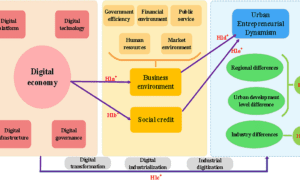APIs (Application Programming Interfaces) have emerged as the transformative force driving digital transformation across industries. By exposing key functionalities and data, APIs are not just enabling the development of innovative new products and services, but also reshaping the very fabric of our digital world. This blog highlights 10 widely adopted APIs that are revolutionising sectors such as identity verification, banking, mobility, and more.
Whether startups or established firms, companies are consuming these APIs to verify user identities seamlessly, validate financial details, or retrieve vehicle information instantly within their applications and products. The API economy has unlocked new revenue streams, improved customer engagement, and enhanced operational agility.
Best APIs Revolutionising the Digital World
Here are the top 10 most-used APIs that are revolutionising today’s world:
1. Voter ID Verification API
This API enables instant verification of voter ID details by extracting data from the Aadhaar database. Seamlessly authenticating voter information, it enables paperless eKYC and onboarding across various sectors, including digital lending, financial services, and e-governance platforms. Significant capabilities include real-time validation of name, age, and address based on the voter ID.
2. Bank Account Verification (Penny Drop) API
The bank account verification API connects with various banking sources to validate account ownership. By confirming the IFSC code, account holder name and other details in real-time, it mitigates financial fraud across digital payments and lending apps.
Key features include bank account and IFSC code validation, masked account number return, and historical transaction analysis to confirm legitimate ownership.
3. Mobile Number Verification API
This API enables instant customer authentication by validating the mobile number provided via one-time password (OTP). Additional customer data, such as telecom usage history and bill payments, can also be retrieved with user consent to enhance trust further.
It is widely used across various sectors, including digital lending, e-commerce, mobility, and communication apps, to verify customers during onboarding and transactions.
4. DL Verification API
The driving licence verification API extracts data from QR codes and RFID chips to validate license details. It can be integrated via SDKs and REST APIs to enable Know Your Customer (KYC), improve identity verification, and prevent forged identities across automobile, bike, and vehicle selling platforms.
5. Email Verification API
By connecting with global email authorities, this API validates the authenticity of email IDs in real-time. It categorises corporate vs disposable emails to mitigate fraud risks.
Marketing automation platforms, CRM tools and support software are widely used to keep clean email lists, improving campaign effectiveness and customer communication.
6. Udyam Certificate Verification API
This API enables digital verification of MSME registration certificates issued by the government of India. By providing instant access to the Udyam database, the API simplifies and accelerates onboarding, lending and credit underwriting for MSMEs on fintech apps and B2B marketplaces.
7. Passport Verification API
The passport verification API connects with global government databases to validate passport numbers and details. It enables seamless visa processing, immigration, and background checks across travel aggregators and insurance providers by extracting essential identity parameters.
8. MCA Company Data API
This API provides real-time financial and compliance data for any registered company or Limited Liability Partnership (LLP) by connecting to the official Ministry of Corporate Affairs (MCA) database. Company master data, director information, legal cases and charges can be accessed via SDKs and developer-friendly interfaces by business information platforms, credit bureaus and compliance software.
9. EPFO Data API
The EPFO data API enables instant customer authentication by returning KYC details through UAN lookup. Essential PF account data, such as account balance, contributions, and date of joining, can be seamlessly retrieved via the API and integrated across payroll tools, HR platforms, and other enterprise software.
10. Vehicle RC Verification API
This API extracts vehicle RC details in real-time from regional transport offices across states. Insurance providers, vehicle original equipment manufacturers (OEMs), and financing companies widely consume it to retrieve up-to-date vehicle registration data, ownership records, and inventory status from RTO databases.
Conclusion
The APIs highlighted in this blog are driving simplification, innovation and trust across sectors. By creating interoperability between systems and opening up data, they enable improved efficiency, decision-making, and governance.
As API adoption grows exponentially, these and many other APIs are playing a pivotal role in the digital transformation journeys of enterprises. Their business impact will accelerate as focus shifts towards API-led connectivity, and you, as part of this dynamic and evolving digital ecosystem, are at the forefront of this transformation.
FAQs
1. What is an API, and why is it important?
An API (Application Programming Interface) is like a bridge that allows different apps or systems to share data and work together effectively. It’s important because it helps businesses create new products, improve efficiency, and provide better customer experiences by seamlessly connecting systems.
2. How does the Voter ID Verification API help businesses?
For instance, the Voter ID Verification API instantly checks voter ID details using the Aadhaar database. It helps businesses in sectors such as finance and e-governance verify user identities quickly, making onboarding faster and more secure without the need for paper documents.
3. What does the Bank Account Verification API do?
This API verifies bank account details, such as the account holder’s name and IFSC code, in real-time. It reduces fraud in digital payments and lending apps by ensuring the account is legitimate, protecting businesses and customers.
4. Why is the Mobile Number Verification API widely used?
The Mobile Number Verification API verifies customers by sending an OTP to their phone. It’s used in e-commerce, lending, and mobility apps to ensure the person signing up or transacting is genuine, building trust and security.
5. How does the Passport Verification API benefit travel companies?
This API checks passport details by connecting to government databases. It helps travel and insurance companies with visa processing and background checks, making identity verification faster and more reliable.



































